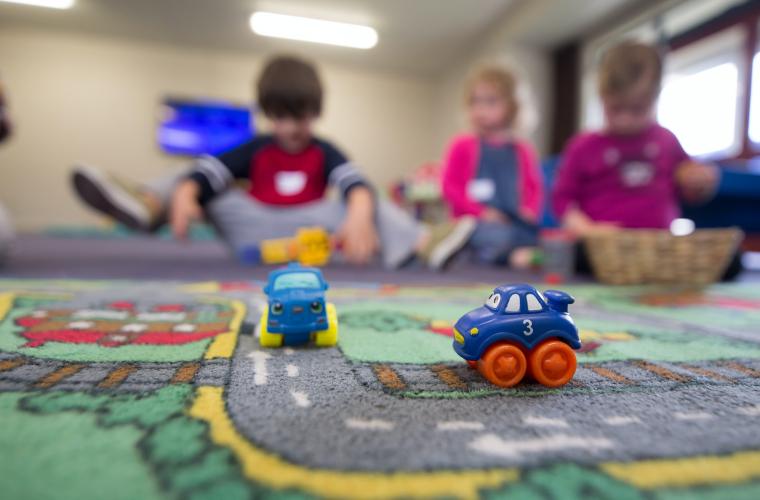Government cuts to early intervention funding in the past decade must be urgently reversed as councils prepare for a surge in demand for support for children and young people who have “disappeared” from view as a result of the pandemic, the Local Government Association says today in a new report.

The LGA said councils are bracing themselves for a rise in referrals for support that would have normally been made when children were being seen regularly by social workers and health workers.
Some children and families will need significant interventions, including child protection plans or even coming into the care system. But for many, they will just need some extra help to get through a difficult period. That could be low level mental health support, sessions with a youth worker, understanding how to support children showing difficult behaviours, or working through parental conflict.
However, the Early Intervention Grant has been reduced by the Government by almost two-thirds – down from £2.8 billion in 2010/11 to £1.1 billion in 2018/19. As a result, many children’s services departments have been forced to cut back the universal and early help services – such as children’s centres and family support services – that can help tackle and prevent emerging problems before they reach crisis point.
In its publication, ‘A child-centred recovery’, launched today, the LGA, which represents councils, is calling for the Spending Review to restore the lost £1.7 billion in funding to councils. This would enable councils to reinstate some of these lost services which can help all children, young people and families to thrive.
Councils are expecting a rise in referrals for increased family, child and adolescent support as the pandemic enters a second phase and amid increased lockdown measures introduced across the country this week.
These referrals could be as a result of physical and domestic abuse, which have soared during lockdown; isolation; young carers taking on even more responsibility; and from the strain on families due to mental health challenges, job losses, alcohol and drug misuse problems, and bereavements as a result of the pandemic.
The LGA says the number of children in care has been rising each year and could increase further as a result of COVID-19. It is also warning that the impact of the virus may fall harder on disadvantaged children, who are likely to need even more support.
Concerns have also been raised over analysis indicating that young people may be worst affected by pandemic-related job losses, and about young people becoming more vulnerable and being drawn into youth violence and county lines drug activities, or being criminally exploited.
The LGA says a lack of investment in early help services will lead to much greater costs to the public purse as problems escalate and become far more severe.
It says children need to be at the heart of policy and decision-making to ensure every child can thrive, with local safety nets properly resourced and well organised.
The LGA is also calling on government to urgently work with councils and providers to increase the availability of placements for looked-after children and young people to ensure that suitable placements are available to meet their needs.
Cllr Judith Blake, Chair of the LGA’s Children and Young People Board, said:
“If we are to avoid families falling into crisis and causing long-term damage to the prospects of children and young people, the Spending Review needs to ensure councils have enough funding to reinvest in the preventative services that children, young people and families need, as soon as they need it – and before problems escalate and reach crisis point.
“Children’s services were already under strain prior to the pandemic, but those pressures have been exacerbated by COVID-19 and these services are now even more crucial to help families get through difficult periods. Funding to meet increased demand for child protection and children in care services is also vital.
“Support for significant interventions, including child protection plans and children entering the care system, will be needed, alongside proper investment in both children’s mental health services, which are under enormous strain, and vital youth services to help a generation hit hard during the crisis.
“The Government’s review of the children’s care system needs to begin as soon as possible, but we want to work with ministers ahead of this on increasing provision for care placements so councils can continue to best support and protect our most vulnerable children.”
NOTES TO EDITORS
1. Councils in England face a funding gap of more than £5 billion by 2024 to maintain services at current levels - this figure could double amid the huge economic and societal uncertainty caused by the COVID-19 pandemic. The LGA’s detailed submission to the Comprehensive Spending Review sets out how £10 billion is needed to not only plug this gap but also meet growing demand pressures and improve services for communities.
2. Read the LGA’s report – ‘A child-centred recovery’.
